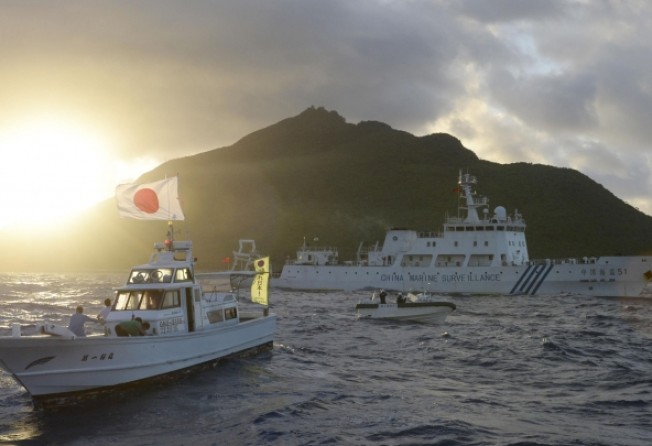Chinese and South Korean anti-Japan sentiment 'at record low'
Survey finds wartime incidents are still working against Japan in the views of its neighbours

Anti-Japan sentiment among its neighbours is on the rise, according to a new survey, as territorial disputes and its role in the Second World War continue to damage its reputation across the East Sea, also known as the Sea of Japan.
The poll by the Washington DC-based Pew Research Centre has found overwhelming feeling in China and South Korea that Japan has not shown enough contrition over its war history, with a mere one per cent of South Koreans saying Tokyo has apologised sufficiently.
These opinions were particularly strong among 18 to 29-year-olds. Only four per cent of young Chinese and three per cent of young South Koreans said they were willing to ignore the issue.
However, 48 per cent of Japanese believed that they have already apologised enough for the war and another 15 per cent believed that no apology was necessary in the first place, according to the survey, which polled adults in eight nations by telephone or in person in March or early April.
The latest figures follow a continued downturn in anti-Japan feeling, with public support falling by 12 per cent in China and five per cent in South Korea over the last five years, according to data from an earlier Pew survey.
Japanese Prime Minister Shinzo Abe, known for a hawkish stance in foreign policy, enjoys similarly low popularity ratings in both countries. Only nine per cent of Chinese and 12 per cent of South Koreans say they see him in a favourable light.
Abe regularly visited the Yasukuni Shrine in downtown Tokyo, which among many others enshrines Class A war criminals, before assuming the premiership in December, earning the wrath of Chinese and South Korean nationalists.
Another incident said to influence responses, said Bruce Stokes, the report’s author, was Japan’s approval of controversial textbooks and statements questioning the facts behind “comfort women.”
Some 200,000 women from conquered territories were forced into wartime brothels for Japanese soldiers but right-leaning politicians - including Abe before he took office - have cast doubt on the extent of Japan’s role.
Views about Japan in Southeast Asia, where Japan also extended its military control during the Second World War, are starkly different from those in China and South Korea. One in eight Malaysians, Indonesians and Filipinos say they have a positive view of the world's third-largest economy.
A majority of Filipinos and Malaysians don't think Japan has to further apologise for its actions in the Second World War.
The level of satisfaction in Japan with the state of the nation is at its highest level since Pew started its surveys in 2002. A decade ago, only 11 per cent of Japanese expected the country's economy to improve within a year. In 2013, that ratio has increased to 40 per cent.
Optimism about the nation's immediate future is second only to the United States among the 39 nations surveyed by Pew. Similarly, 71 per cent of Japanese see Abe in a favourable light ahead of elections scheduled for July 21.
Japanese are taking note of increasing frictions with their western neighbours. While a majority of Japanese still oppose changing the constitution's Article 9, in which the country renounces war as a means for resolving disputes, that majority has been shrinking.
Half a decade ago, 31 per cent said they were in favour of a constitutional revision. Now, it's 36 per cent.